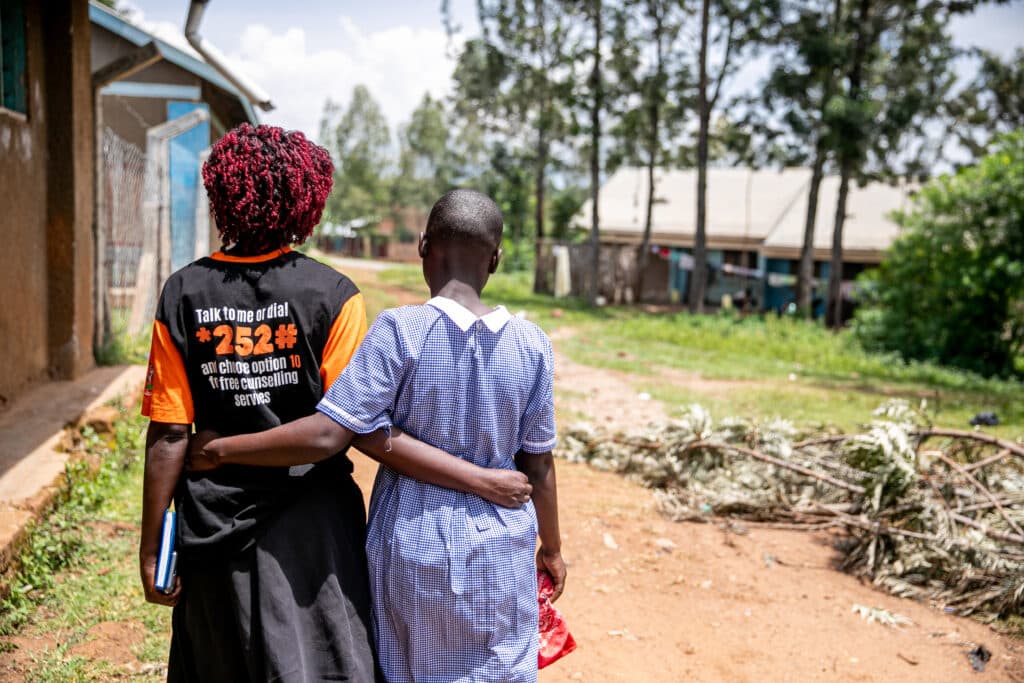World AIDS Day: How Mental Health Treatment Supports the Fight Against HIV/AIDS
On December 1, we join the global community in commemorating World AIDS Day, a time to raise awareness and reflect on the progress made in the fight against HIV/AIDS and the work still ahead.
The African continent is disproportionately affected by the HIV/AIDS epidemic, accounting for 70% of all global HIV cases. Three out of four newly infected adolescents globally are also from sub-Saharan Africa, highlighting the urgent need for targeted interventions.
At StrongMinds, we know that HIV status and mental health are inextricably linked. Untreated depression can lead to high-risk sexual behavior and substance use, both risk factors for HIV, and we also know that antiretroviral therapy (ART) adherence is 42% lower among people with depressive symptoms. On the flip side, the odds of ART adherence are 83% better when depression has been treated and depression treatment can have a protective effect on HIV risk, particularly among adolescents.

Deborah, a 34-year-old widow living with HIV, offers a powerful example of this connection. After losing her husband and testing positive for HIV, she struggled with suicidal thoughts and severe stress-induced headaches. Initially skeptical of therapy, she gradually found comfort in sharing her challenges with others facing similar struggles. Therapy not only helped Deborah manage her depression, but also gave her the tools to live positively, adhere to her HIV medication, and rebuild her sense of purpose. “StrongMinds has transformed my life,” she shared, adding that she now feels happy, focused, and full of energy.
Through partnerships with NGOs focused on sexual and reproductive health, we have treated more than 28,000 clients, and we see 42% of sexually active adolescents begin using contraceptives following therapy.
Stories like Deborah’s underscore the importance of integrating mental health into comprehensive HIV care. Addressing mental health is not just transformative—it’s lifesaving.
